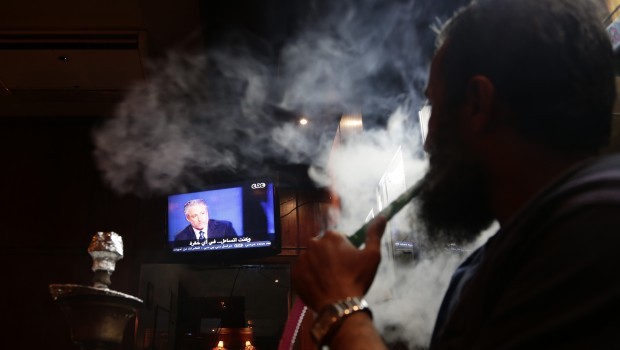The number of satirical television shows is on the rise in the Arab world. These programs assume the responsibility of discussing issues of public concern, granting them a wide following among people who want to release the frustration and despair caused by the circumstances in the Arab world. These programs have also gained popularity because of their format, which combines irony, humor and wit in dealing with the issues of the day.
Conflicting reactions to these programs have emerged from this rise in satirical media. Some give praise, some criticize this new format, and some merely watch without taking a specific stance. However, despite the fact that these programs may be right in their criticisms of authority, they do contain disparaging content which goes against the tradition and values of our society.
In this case, permit me to make two observations about this new satire, which in my opinion is closer to entertainment.
First, it is difficult to consider satire as a form of media. It is true that ancient, modern and contemporary cultures have different types of art and entertainment, including comedy. However, it is important to differentiate between criticism and derision. This is what we miss in the so-called satirical media, which takes its name from the art of mockery. It would have been better to call it “critical media” if it was really aiming at constructive criticism. There is a huge difference between criticism to insult and criticism to advise, construct and rectify. This is what we have in the “serious” media, which often gives a critique in addition to offering real solutions to problems.
Second, it is important that this type of media adheres to social standards and values. Even if this kind of satire is acceptable in Western society, Islamic values differ. The major principle that regulates Islamic behavior, according to Islamic Shari’a law, is promoting virtue and preventing vice.
In light of these two observations, we face a situation that requires immediate correction without wasting time on futile arguments which will not help improve and develop our society. Instead of talking about so-called satirical media and the Arab world’s need for satire and humor under the lash of dictatorship and tyranny, we should discuss the role of “serious” media in righting wrongs and steering the government towards the right path.
There can be no doubt that there is a disconnect between the ruling authority’s vision of press freedom and what is actually happening on the ground, particularly as the ruling authority often does not seem to understand the magnitude of change that has taken place in the field of freedom of expression. However, we must also counterbalance this with the media’s attempts to break government restrictions, relying on the theory that media freedoms can and should cross all boundaries. This results in chaos and a lack of professionalism and social responsibility.
The crux of the matter lies in finding a way to achieve a balance between freedom and responsibility, increasing the burden on both sides. The ruling authorities must accept the changes that have taken place in our region, recognizing a new era of freedom and political and social participation. On the other hand, journalists must realize that there are restrictions to media freedom, including legal controls, as well as social, religious and personal ones, all of which relates to securing order and the public interest. This means that there are legal, social and moral responsibilities that restrict a journalist’s right to say whatever they like, whenever they like, using any terms they like. Media figures must adhere to professional standards and personal responsibilities towards society.
The counterpoint to this article can be read here.
